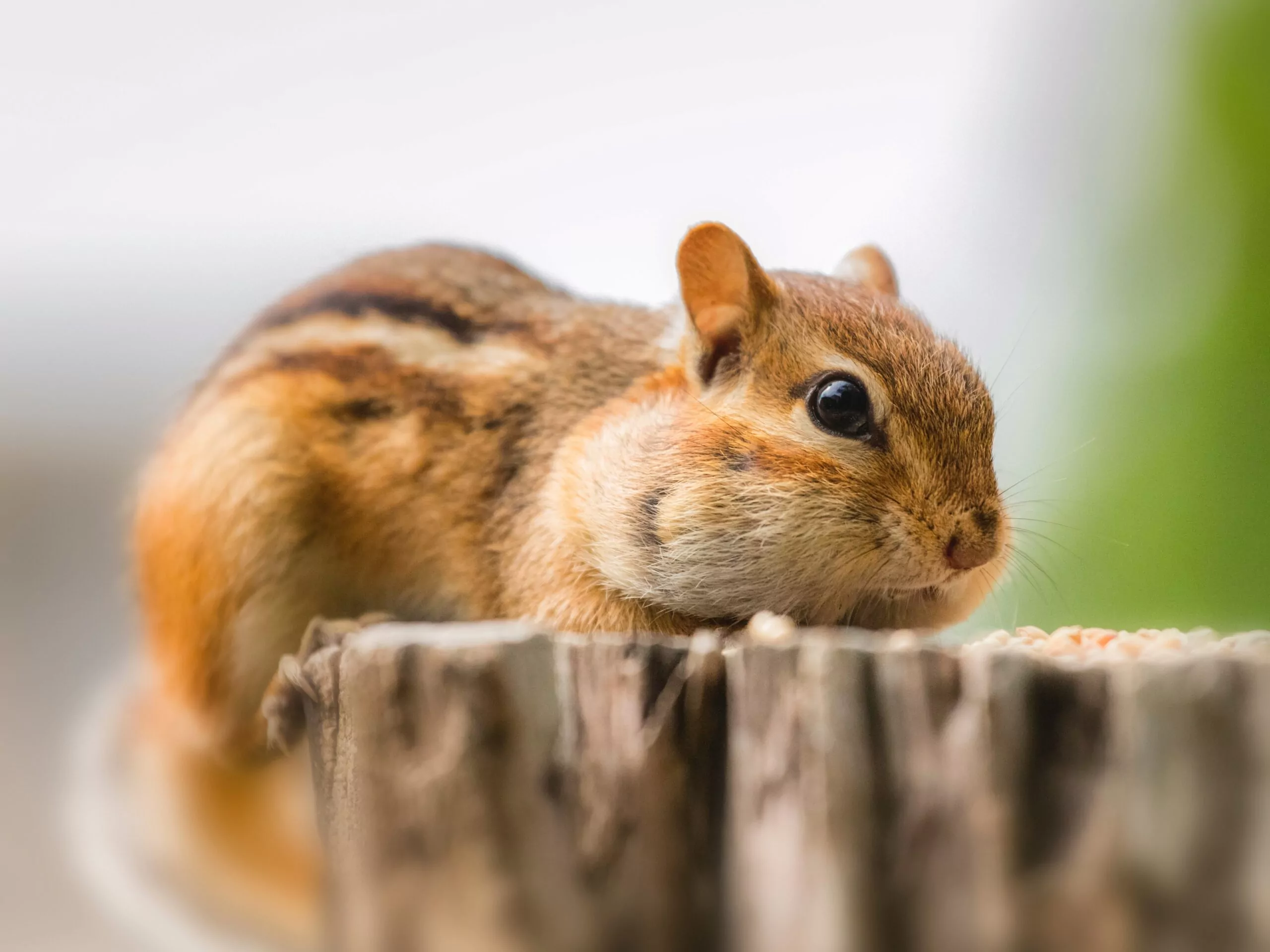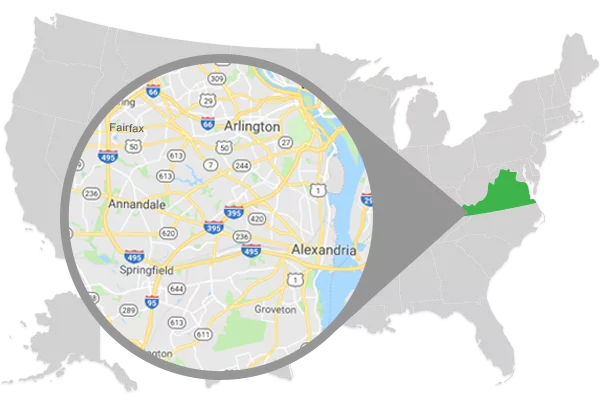
Chipmunks are small rodents with stripes running down their backs. They are actually a type of squirrel. There are 25 different species of chipmunks in the United States, but the Eastern chipmunk and the Western chipmunk are most prevalent. Chipmunks are omnivores and eat a diet made up of nuts, seeds, fruit, frogs, eggs, worms and insects. They have pouches in their cheeks that allow them to transport their food to their burrows where they can store their food for winter and even help to feed their young. Eastern chipmunks hibernate while Western chipmunks do not. Chipmunks are diurnal meaning they are active during the day and sleep during the night, however they still typically sleep about 15 or more hours a day in their burrow. They construct their burrows underground and they can be quite extensive and can be more than 11 feet in length.
Chipmunks typically live only about three years in the wild but have been noted to live for nine or more years in captivity. Some of the factors that contribute to their short lifespan are their predators, and other environmental factors such as cars and weather changes. Some predators of chipmunks are owls, hawks, weasels, foxes, coyotes, raccoons, cats, dogs, snakes and sometimes even squirrels. Chipmunks are solitary creatures and spend most of their time alone unless it is mating season. Chipmunks mate twice a year, once in the spring and again in the summer. The mothers or the does, don’t remain close to the chipmunks much after they are born and the fathers or bucks don’t help raise the young at all.
Chipmunks give birth to two to five babies with a gestation period of 31 days. Their babies are called kits, kittens or pups. They are born hairless, blind and helpless. Once the kits are six weeks old, they will start to explore outside of the burrow and when they are ten weeks old, their mother will no longer allow them access to the burrow and they must live independently. Once more the mother is alone until the next time she mates again. Chipmunks are not monogamous and will have several mates throughout their lifetime. Sometimes it can be difficult to know if you have chipmunks in your home, because they don’t make loud noises or cause damage, but can still be a nuisance.
Do you have a chipmunk in your home?
If there is a chipmunk in your home in Fairfax, Alexandria, Arlington or other parts of Northern Virginia, they most likely got inside on accident and want to find a way back out. While it may seem like a smart option to open doors and windows in the space where you think the chipmunk is, that may actually increase the number of wild animals you have in your home. The best thing to do when there are chipmunks or other wild animals in your home is to call an animal removal service, like Summit Wildlife Removal. At Summit, we will first conduct a thorough inspection and give you an estimate on what it will cost to remove the chipmunks from your home. The chipmunks can be removed from your property in a variety of different ways and the technician who comes out to do the inspection will let you know which one is the best for your particular situation.
Why should you have chipmunks removed from your property?
Chipmunks are wild animals and belong outside. Because chipmunks burrow, they can cause some disruption to your garden or yard. Chipmunks are not known for carrying any potentially harmful diseases or viruses or causing structural damage but they might urinate and defecate in your home, so they are mostly known for being nuisance animals.
What are some preventative measures you can take?
Some preventive measures you can take for chipmunks is to seal openings in the home, keep windows and doors shut. In addition, it’s important to make sure that food sources are stored properly and make sure bird seed and other things that chipmunks might enjoy are cleaned up from the yard properly. Another preventative measure to keep chipmunks away is to consider getting an animal barrier wall installed, which will prevent them from getting close to your home and burrowing. Plant-free gravel borders will also help prevent chipmunks, because it makes it harder for them to dig and less desirable because the plant-free gravel offers them no food source. Planting flowers such as daffodils and other plants they don’t like may help to deter them. Ultimately the best thing to do is to remove them from your property and then maintain your property to ensure they don’t return.
How can I remove chipmunks from my property?
If there are chipmunks in your home, such as your crawl space, there are removal and exclusion options. The first being live trapping, at Summit, we can bait a humane live trap near where the chipmunk is entering and exiting your home. If the trapping doesn’t seem to be working, the alternative is a one-way door device. The one-way allows for the chipmunk to leave the space safely on its own and not reenter the space. Once the chipmunk is out the best thing to do is to get the spot where it entered, sealed. Half of the animal removal process is actually doing the repairs to the home or where the animals might have caused damages. If chipmunks are burrowing in your yard, garden or under your deck or patio, the best option would be to consider an animal barrier wall. The barrier wall will work for a variety of different animals and will prevent them from burrowing or denning in your yard. Once the chipmunks are gone from your home or yard, the best thing to do is to work to maintain your property’s cleanliness so they don’t return, this includes not waiting to get repairs done to your roof, holes in walls and foundation and in the attic space. For more information about chipmunks or to schedule an inspection and estimate for chipmunk removal, contact us.












